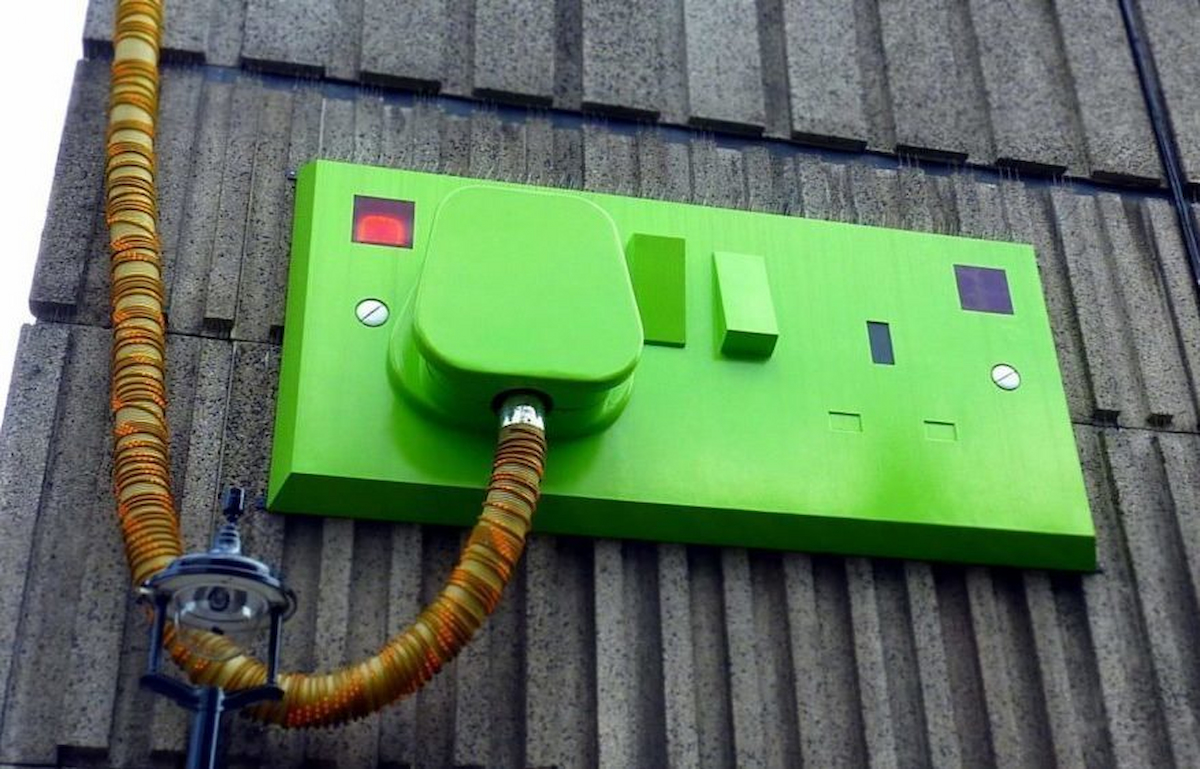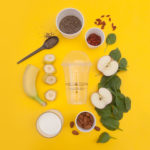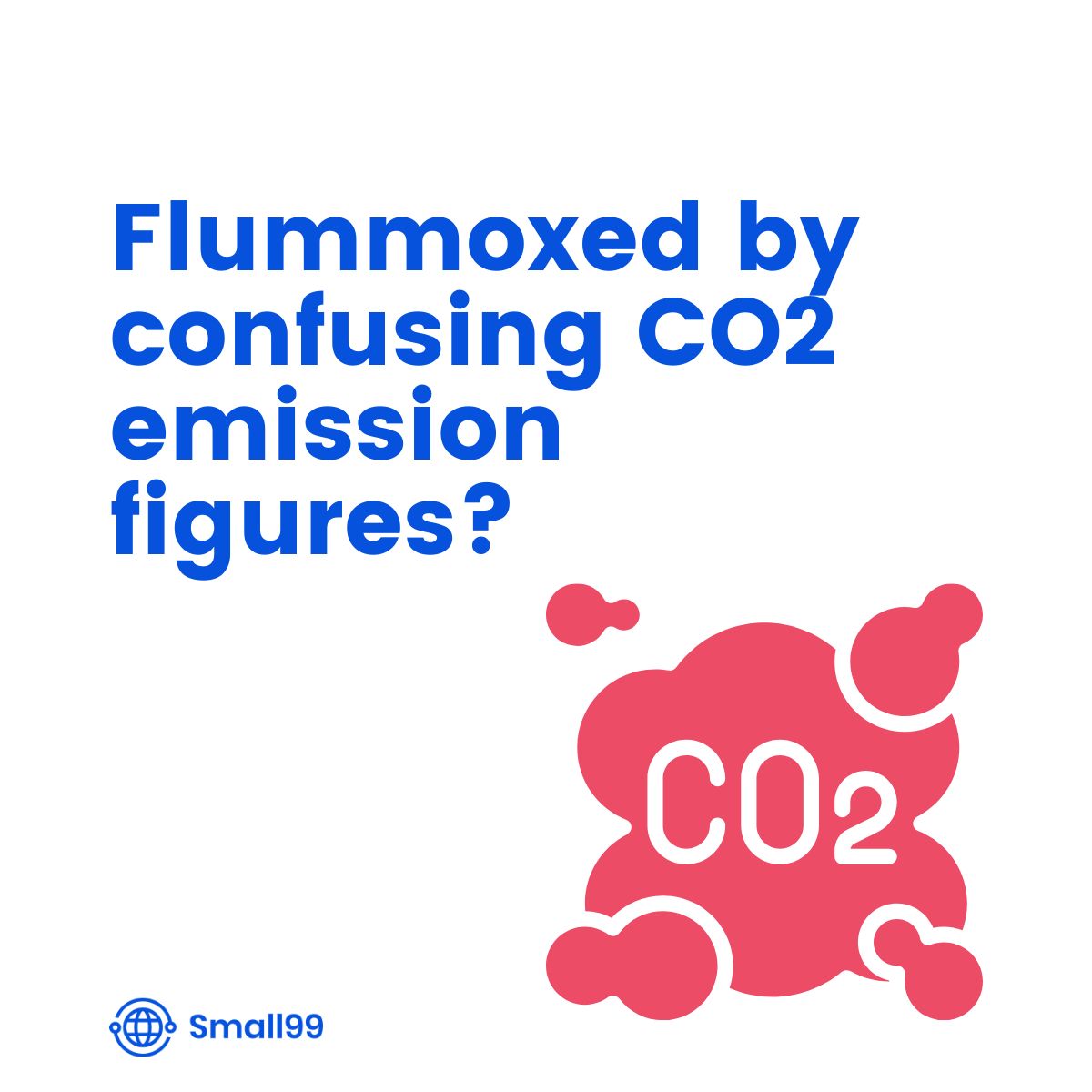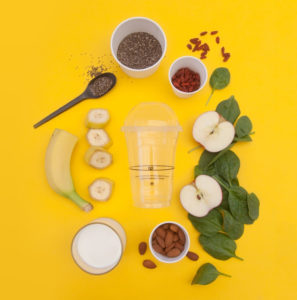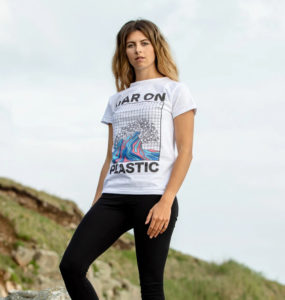Based on government estimates, nearly 20% of the UK’s overall carbon emissions are attributed to small and medium-sized companies (SMEs). 51% of the 564 SMEs interviewed by the Carbon Trust want to do more to reduce their energy consumption.
We’ve compiled examples of how SMEs achieved reductions in their carbon footprint to provide you with some inspiration.
Sustainable Practices to Reduce Carbon Footprint
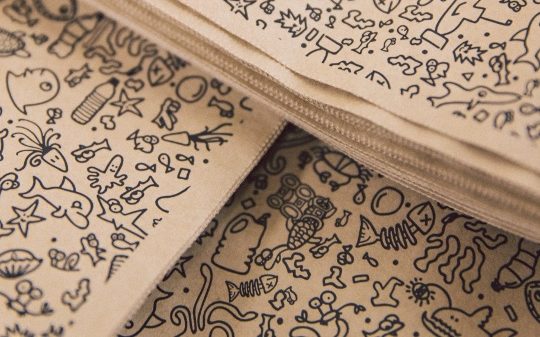

Rapanui / TeeMill
Rapanui are a sustainable fashion brand who has designed a circular smart supply chain. They have two renewable energy-powered factories, one in the UK (Teemill) and another one in India.
They even make stickers printed on waste cotton mixed with water, with inks made from soy sauce! They’re a great example of what is possible when environmental policy and some clever thinking is at the core of your business.
Sector
Fashion
Achievement
- Completely plastic free shipping
- Minimal Waste
- Use of clean energy
Strategy
- No Wasted Inventory Developed a free online platform which connects their factory to fashion retailers. This allows them to manage real-time on-demand manufacturing with no waste inventory. Also, a machine-to-machine communication ensures smart equipment operations which minimise energy waste.
- Circular Economy You can return a worn-out product for free to the company who will reuse it to make new clothes
- Use plastic-free packaging
- Run their own solar and wind farms.
- T-shirts made of certified organic cotton
- Cotton waste seeds reused as cow feed. Plus cotton plant-derived vegetable oil is used in food products.
- Recirculate, purify and reuse ca. 95% of the dyes-containing wastewater
UKOS plc
Recognised as ‘The Greenest Company in the UK’ by The Sunday Times, UKOS delivers office and workplace products to large corporates, public sector organisations and SMEs throughout the UK.
Sector:
Office supplies
Achievement:
- 90% of waste recycled;
- 75% less packaging used;
- 50% miles reduction per delivery.
Strategy
- Collection of recyclable waste (cardboard, printer toners and plastics) from some customers when delivering supplies;
- Box4Life project: adoption of reusable, corrugated propylene boxes instead of single-use cardboard boxes;
- Encouraged customers to increase their average order per delivery and set up a three-times-a-week delivery schedule rather next-day delivery.
Billington Structures
Billington Structures is one of the UK’s leading structural steel contractors. They make steel in their own fabrication plants and deliver projects in a wide range of fields (residential, industrial, infrastructure, etc.).
Sector:
Construction
Achievement:
- Steel Construction Sustainability Charter certification.
Strategy
- Reduction in the application of shot blast, a mechanical cleaning process to clean steel surface prior to painting;
- Keeping records of employees’ training and qualifications in a computerised form (reducing the need for printing);
- Monitor carbon footprint of operations;
- Use environmental impact assessment for process improvement.
Rainbow Nightfreight
Rainbow Nightfreight provided next day freight service mostly across the UK but also overseas. Being a multi-user carrier, they maximize their fleet’s capacity loading and optimise route planning to minimize the overall number of journeys and mileage travelled.
Sector:
Logistics
Achievement:
- Claimed to produce fewer CO2 emissions compared to dedicated (single-user) service providers.
Strategy
- Multi-user nightfreight service (optimal loading resulting in fewer miles travelled and lower fuel consumption (this is recorded electronically on a daily basis to monitor inefficiencies);
- Implemented defensive driver training programmes (anticipating dangerous situations so as to drive more safely, minimizing brake wear, optimising tyre pressure, efficient planning for each individual journey);
- Introduction of LED and induction lighting for energy efficiency;
- Introduction of in-cab handheld devices for consignee signatures (less paper used).
Wholegrain Digital
Wholegrain Digital is London’s first WordPress web design agency. They help businesses to create optimised low-carbon websites.
Sector:
Digital services
Achievement:
Strategy
- Minimised printing;
- Used recycled, organic and/or FSC certified materials for all printed goods;
- Strive to use only vegetable based inks;
- Promoted cycling at work by providing staff with free access to London’s Santander Cycles;
- Host their websites on energy efficient servers using 100% renewable energy;
- Use second hand equipment where available and donate used computers to charity;
- No-fly policy for business travelling;
- Use shared office space powered by renewable energy.
Burns Pet Food
Founded in 1993 by the vet surgeon John Burns, Burns Pet Food is a family-run pet food company which delivers natural healthy feed for dogs, cats and other small animals.
Sector:
Pet food
Achievement:
- Green Dragon Environmental Scheme Level 2 certification;
- Recycling of at least a tonne of cardboard and plastic every month.
Strategy
- Compost office green waste in their organic garden;
- Developed a 100% recyclable packaging;
- Purchased their own compactor to help recycle plastic and cardboard;
- Use of natural sheep’s wool as insulation;
- Water heating powered by solar panels;
- Save water via dual flush toilets;
- Cycle to work scheme;
- Car sharing scheme.
Fatherson Bakery
Fatherson Bakery uses locally and sustainably sourced ingredients to produce handmade cakes. They aim to be the first eco-friendly bakers in the UK.
Sector:
Food
Achievement:
- Zero-to-landfill waste
Strategy
- Use 100% recycled &100% recyclable material packaging;
- Food waste converted into biogas and electricity for the National Grid;
- Introduced a re-use policy encouraging customers to return delivery boxes;
- Bakery trays made from recycled plastic.
Wilton
Wilton is a B-Corp certified company based in London providing home eco-friendly cleaning products.
Sector:
Home Care
Achievement:
- Waste minimisation
Strategy
- Bottles are made of recycled plastic (PET) which is recyclable (Wilton’s laundry bottles requires 50% less plastic than other brands’ products);
- Encourage reuse by providing refilling station for their bottles (available at eat17 Hackney and Almond & Co Westbourne);
- Product formulas are biodegradable and free from synthetic dyes (they use plant-derived ingredients).
Donald Russell
Donald Russel is a mail order food delivery company based in Scotland. They hold the Royal Warrant.
Sector:
Food
Achievement:
- CO2 emissions reduction;
- Waste reduction (0% to landfill);
- Recycled 155 tonnes of cardboard in 2019.
Strategy
- Source meat, fish and other ingredients as locally as possible;
- Uses dry ice made from recycled CO2 (fertiliser production by-product) for delivering frozen foods;
- “Use recyclable materials in your delivery” option available at checkout;
- Designed an eco-packaging made of cardboard, natural wool (this can be returned for free to manufacturers for reuse) and recyclable plastic in alternative to recyclable polystyrene;
- Their printed promotional material is made from recycled FSC-certified paper and is recyclable;
- Reuse meat residues as pet food or send them to biofuel industries or to anaerobic digestion plants;
- Invested in Energy Star computer monitors, Dyson ‘Airblade’ hand dryers (emitting up to 76% less CO2 than paper towel dispensers) and energy-efficient LED lights;
- Adopted bike to work scheme.
Eco-friendly Processes to Reduce Emissions
Multus Media
Multus Media are a farming technology company who is making cultivated meat healthier (no antibiotics/contaminants) low-cost and more sustainable. Without raising and killing any livestock, they design animal-free meat in the lab and scale it up to meet industrial demand.
Sector:
Farming
Process:
- Development of a cheaper alternative nutrients (protein) solution compared to the industrial standard (blood serum taken from pregnant cows). These animal-free nutrients are fed to fat and muscle cells allowing them to grow into meat.
Achievement (reduction vs conventional meat producers):
- 87% fewer greenhouse gases (GHGs);
- Less land and water required.
Strategy
- Optimised a variety of growth factor proteins through a machine learning platform;
- Used existing industrial plants from the brewing and biopharmaceutical industry for their production process.
Econic
Econic developed a catalyst technology which turns waste CO2 into a valuable product for the plastics industry.
Sector:
Materials
Process:
- Process: Designed a catalyst converting CO2 into a raw material used for plastic production
Achievement:
- 3.5M tons/year fewer CO2 emissions (based on a 30% market adoption by 2026).
Strategy
- Incorporation of CO2 into the polymer production process implied using less plastic (fossil fuels) and avoided release of carbon dioxide into the atmosphere.
hydroCotton
hydroCotton is a London-based startup providing sustainably grown cotton to fashion brands. After their successful first farm trial in 2019, they will be launching a commercial scale farm for producing larger volumes of eco-friendly cotton.
Sector:
Agriculture/Fashion
Process:
- Cultivation of an eco-friendly cotton for fashion companies
Achievement (reduction vs conventional agricultural methods):
- 80% less water required;
- Less land needed.
Strategy
- Delivered water and nutrients directly to the roots of the plants (more efficient absorption) rather than over a large area;
- Recovered any nutrients and water that hasn’t immediately been absorbed;
- Embedded sensors in the growing system to monitor the crop sustainability.
Whether it’s a novel greener process or some more environmentally sound practices, what we found above clearly shows reducing your business’ carbon footprint is possible. If these green entrepreneurs made it, you can do it too!
Green distilleries
Seventeen distilleries across the UK (eleven of them are Scottish) will be granted between £44,000 and £75,000 to implement decarbonisation projects. The UK government claims this funding will allow the companies to achieve a million tonnes of CO2 reduction per year altogether.
How will this happen?
Distilleries will achieve this significant carbon footprint reduction by investing the money received in advanced low-carbon technologies. These include powering their facilities with renewable energy sources, such as geothermal and biofuels, or lower-impact fuels like hydrogen. Also, some of the businesses will spend their funds to explore the potential of novel fuels such as green hydrogen and electrolysers to aim for zero-emission solutions.




